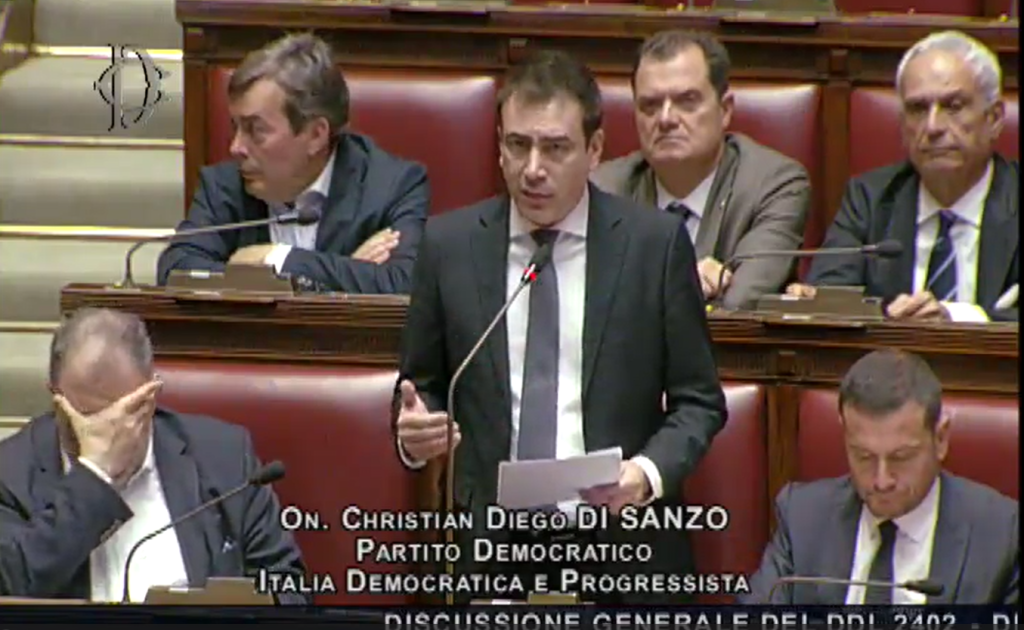A very hard blow for Italian communities around the world. This is how many representatives and observers are calling the new decree on citizenship approved by the Meloni government, which effectively introduces unprecedented limits on the recognition of Italian citizenship to the descendants of Italians who have emigrated abroad.
Raising the alarm in an impassioned speech in the House was Hon. Christian Di Sanzo, Congressman elected in North and Central America: “The government is taking us back to the 1980s, when dual citizenship did not exist in Italy. The conditions, set by the decree, for Italians abroad to transmit Italian citizenship to their children and grandchildren are very harsh. From today, if the parents have dual citizenship, the children will only be able to be Italian citizens if the parents have lived two continuous years in Italy before the child’s birth; in practice, all children of Italian-Americans and Italian-Canadians will not have Italian citizenship, unless the parents have lived in Italy-a very harsh decree wanted by the Meloni government, which will have the effect of destroying our communities of Italians abroad. Citizenship will therefore no longer be transferable to grandchildren even for all Italians who emigrate today and go to live abroad, in essence within a generation our communities abroad will disappear.”
But that’s not all. The decree also freezes paperwork for the recognition of citizenship by descent to March 27, 2025, saving only those already filed. “We obtained-thanks to an amendment by the Democratic Party-the safeguarding of those who already had a fixed appointment. The least that could be done to avoid passing as the usual puffin country, where you first promise something to people who spend thousands of euros to obtain it and then you cancel everything by saying that you had simply joked.”
Another critical point concerns the registration of children born abroad: under the new decree, children will have to be registered within a year of birth, otherwise they will lose their automatic right to citizenship. Hon. Di Sanzo therefore made an urgent appeal: “Those who have minor children and have not yet done so must do so by May 31, 2026. After that, it will no longer be possible to grant them Italian citizenship.”
The only positive note-and not without contradictions-is the possibility of regaining citizenship for those who lost it before 1992, when Italy did not allow dual citizenship. “An achievement that we strongly claim as the Democratic Party for the work we have done on this issue.” In fact, Di Sanzo himself had introduced a bill to allow the reacquisition shortly after his election. “an achievement that as passed, however, remains incomplete: those who reacquire it will not be able to pass it on to their grandchildren-a half achievement for the many Italians who hoped for this measure.”
In his concluding remarks, Di Sanzo delivered a strong message to the majority: “Today is the day of the beginning of the end of a cultural, political, historical legacy of our communities abroad-communities that you do not understand how to integrate into the country system, communities that you are afraid of and do not know how to make part of, except in words when you go to seek their vote. I hope Italians abroad remember the name of President Giorgia Meloni-the name of the one who decreed the end of our communities. Instead, we, as the Democratic Party, believe in a fundamentally different idea of the world, in a world where the international experience of our young people is a value and not a demerit, in a world where you can be a citizen of more than one country and build bridges between Italy and abroad.”
The decree is law. But the battle to defend the right to be Italian in the world is far from over. The expat community is now called upon to react, to get informed and – most importantly – to act.
The article Di Sanzo: for Italians abroad, grandchildren without citizenship comes from TheNewyorker.

